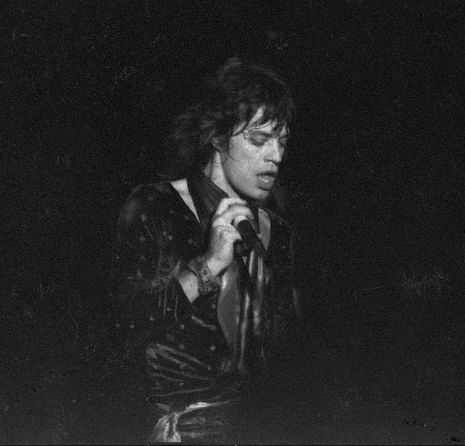‘The sunshine bores the daylights out of me’: Exile on Main St. at 50
James Lewis looks back on the Rolling Stones’ epic masterpiece and reflects on its long-lasting, poignant appeal

Today marks the fiftieth anniversary of the Rolling Stones’ most beloved album, Exile on Main St. The mythology surrounding it has always been compelling: fleeing the UK as tax exiles, the Stones recorded the work while holed up in Keith Richards’ rented villa, Nellcôte, on the French Riviera. To some degree, the group languished there – particularly Richards, who was developing an increasingly intimate relationship with heroin – but they thrived too: long stretches of drug-induced ennui were gradually interrupted by moments where everything came together in the property’s makeshift basement studio, often in the small hours. This idea of a downtrodden group on the run rising above it all with rock ‘n’ roll constitutes the album’s invincible appeal.
“Many of the tracks are menacing blues oddities straight from the gutter”
The dramatic setting helps. The Azure Coast was a more anarchic frontier in the 70s. And deadly too. Richards was forced to play the bandit every time he wanted to score: “I carried a piece in those days,” he once said in an interview, “because you’d buy the stuff, walk down the stairs, and they’d have their mate waiting down the stairs to stick you up and take it back again.” If Richards were to stroll onto the set of the bloody Marseille opening of The French Connection, made around the same time, you wouldn’t question it. That rawness colours the music. Many of the tracks are menacing blues oddities straight from the gutter. Mick Jagger wrote the lyrics to one such track, “Casino Boogie”, by scribbling down a series of random phrases on pieces of paper and throwing them together. Among the chosen non-sequiturs are “wounded lover”, “kissing c**t in Cannes” and, to sum it all up, “grotesque music”. The depths feel real, making the Stones’ outlaw status believable.
But it isn’t all tortured blues. The Stones also combat the malaise with joyous numbers like the country ballad “Sweet Virginia” that somehow locates the rolling fields of the Golden State from inside Richards’ basement: “Thank you for your wine, California,” Jagger sings with palpable warmth. Then there’s the shimmering gospel of “Shine a Light”. The singer’s delivery of the lines “May the good Lord shine a light on you / Make every song your favourite tune,” is so heartfelt and childlike that you almost forget what he was up to in Cannes. But that’s the point of the album, darkness and light together.
“It’s a thrilling conflict to listen to, given how distant it seems today”
That dichotomy is most apparent in the hardest-rocking tracks. In rollicking opener “Rocks Off” the Stones turn despair into hope. An aging Jagger sings that he isn’t the lover he once was (“I was making love last night / To a dancer friend of mine / I can’t seem to stay in step [...] I only get my rocks off while I’m sleeping”), but the rip-roaring delivery and brass backing make it sound as though he’s proud of this. Similarly, he turns his draining lifestyle of sleeping all day after getting wasted all night into something to boast about as he belts out one of the great lines in rock music: “The sunshine bores the daylights out of me.” He asserts contempt for those who sleep and wake normally, who could never stick it in his world.
But the album’s most dedicated lead vocal comes from Richards. Fittingly so, given that his addiction made the weight of this lifestyle even heavier. On rock ‘n’ roll manifesto “Happy”, he injects joy into bleak circumstances with a wiry, wailing tenor. He shuns the long-term (“never kept a dollar past sunset”) and thanks god that he never worked a proper job (“Never wanna be like papa / Working for the boss every night and day”). He contests that what he finds contentment in is as legitimate as anything else; the refrain “I need a love to keep me happy” can be mistaken for “I needle up”, a double entendre that argues there’s really no difference between the two. Different strokes. The track’s gloriously alienating character is Exile’s strongest reminder that rock stars aren’t like us. Of course, Richards isn’t really a mythical figure – he’s running scared of the taxman, for one – but he sounds it on “Happy”. For something loftier than today’s rock-and-roll-is-dead state of affairs, these are the three minutes I return to most.
There’s a suitably mythical photograph of the guitarist at Nellcôte sat shirtless and cross-legged like an emaciated Buddha. He looks terrible, but fantastic. And that’s the essence of the album – divine decay. The image also has Richards clearly enjoying the sunlight that they scoff at – the group, and the album, can never quite decide between dark and light. It’s a thrilling conflict to listen to, given how distant it seems today; oligarchs have since stripped the Riviera of its edge, and the Stones themselves never sounded this raw again. Fifty years on, we can only marvel at a long-dead musical force strong enough to turn something as simple as sunshine into an existential debate.
 News / Right-wing billionaire Peter Thiel gives ‘antichrist’ lecture in Cambridge6 February 2026
News / Right-wing billionaire Peter Thiel gives ‘antichrist’ lecture in Cambridge6 February 2026 News / Cambridge students uncover possible execution pit9 February 2026
News / Cambridge students uncover possible execution pit9 February 2026 Features / From fresher to finalist: how have you evolved at Cambridge?10 February 2026
Features / From fresher to finalist: how have you evolved at Cambridge?10 February 2026 News / Epstein contacted Cambridge academics about research funding6 February 2026
News / Epstein contacted Cambridge academics about research funding6 February 2026 News / Churchill plans for new Archives Centre building10 February 2026
News / Churchill plans for new Archives Centre building10 February 2026








